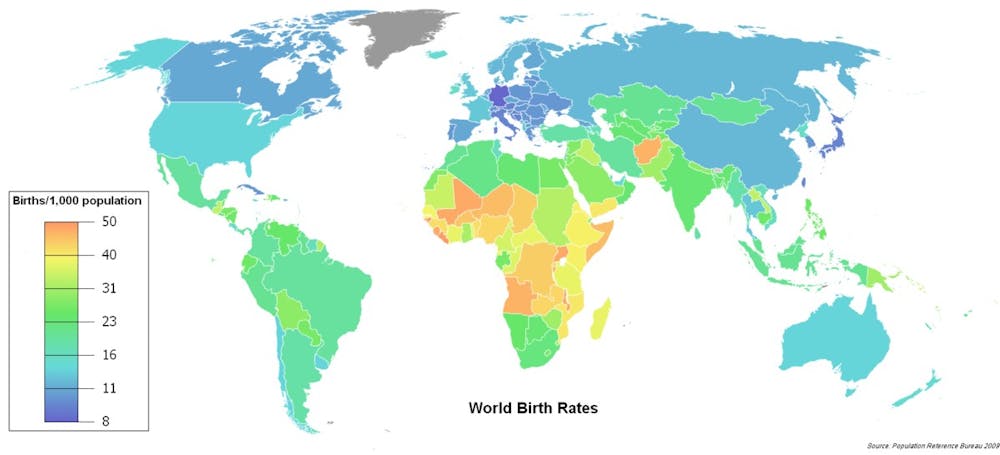The act of making love is what organisms desire most at a primal level — the pinnacle of carnal rapture — and represents the culmination of millions of years of evolution and generations of heredity. Across all of Western civilization, though, we are witnessing an interesting phenomenon — increases in celibacy rates among youth, and complementary decreases in the rate of childbirth. Perhaps most notably, the United States recently hit a historically low fertility rate of 1.72, well below the scientifically-documented population replacement rate of 2.1. People in developed nations are having fewer children than ever before, and while the circumstances that brought about this shift may be positive in nature, there are also several negative ramifications that come along with it — primarily from an economic perspective.
The most notable example of this impact can be found in our mangled, dysfunctional Social Security system. The theory behind Social Security itself is somewhat logical — individuals pay into the program throughout their working lives while that money supports current retirees, and then theoretically receive benefits themselves once they’re older. However, with a burgeoning senior demographic being supported by a dwindling youth, the system is now pumping out a lot more money than it is taking in — and there’s a good chance that the well runs dry before millennials even get a drop.
The subject has thus become the topic of myriad political debates, but the crux of the problem would not even exist had birth rates not consistently declined over the past few decades in our nation. Similar logic can be applied to other proposed social programs as well. As time passes, a lesser number of workers will have to provide for a growing number of dependents, which decreases the fiscal viability of many of these systems, such as public healthcare. At its core, welfare states require a sizable, growing workforce to function effectively, but a perpetually aging populace in the West may turn many of our social programs into little more than glorified Ponzi schemes.
An interesting case study in this discussion is the island nation of Japan, which faces many of the same fertility problems as the West, except to an even higher degree. With a measly fertility rate of 1.42, and with nearly half of its youth population mired in celibacy, the economic costs of this lack of reproduction have become markedly apparent. Their workforce is dwindling and declining, while an ever increasing proportion of senior citizens is creating a massive financial burden for Japanese families and the government — which manifests itself in rapidly increasing social welfare spending. While this presents an extreme case of the problems discussed, if our fertility rates continue to decline unabated, America and the West could very well be heading down a similar path.
However, this problem may not be as irremediable as it appears. There are several viable solutions that can be leveraged to ameliorate this situation in the short-term, such as increased immigration rates to bolster the youth workforce — a tactic being used by even the historically isolationist Japanese government. That being said, as technology and automation continue to develop globally, the need for a sizable workforce itself may decline, creating an even higher number of dependents and lowering the utility of additional unskilled migrant labor. Thus, I believe the chief solution to this conundrum is simply to cajole our populace into producing more children. This can perhaps be achieved through economic incentives such as cash dividends for procreation, which have seen success in Finland and other European nations.
Summarily, the core of our collectivist civilization relies heavily on an ample supply of young workers constantly entering the markets, to both keep our economy churning and to provide for the old and the needy. Without that core ingredient, though, the entire system starts to fall apart at its hinges, and thus necessitates productive dialogue so that immediate societal action can be taken. Should we fail to reverse these trends of child production in the West, we could very well face the same fate as nations like Japan, so it is imperative that this Valentine’s Day, each and every one of us does our part for the continued glory of our civilization.
Milan Bharadwaj is an Opinion Columnist for The Cavalier Daily. He can be reached at opinion@cavalierdaily.com.
The opinions expressed in this column are not necessarily those of The Cavalier Daily. Columns represent the views of the authors alone.





